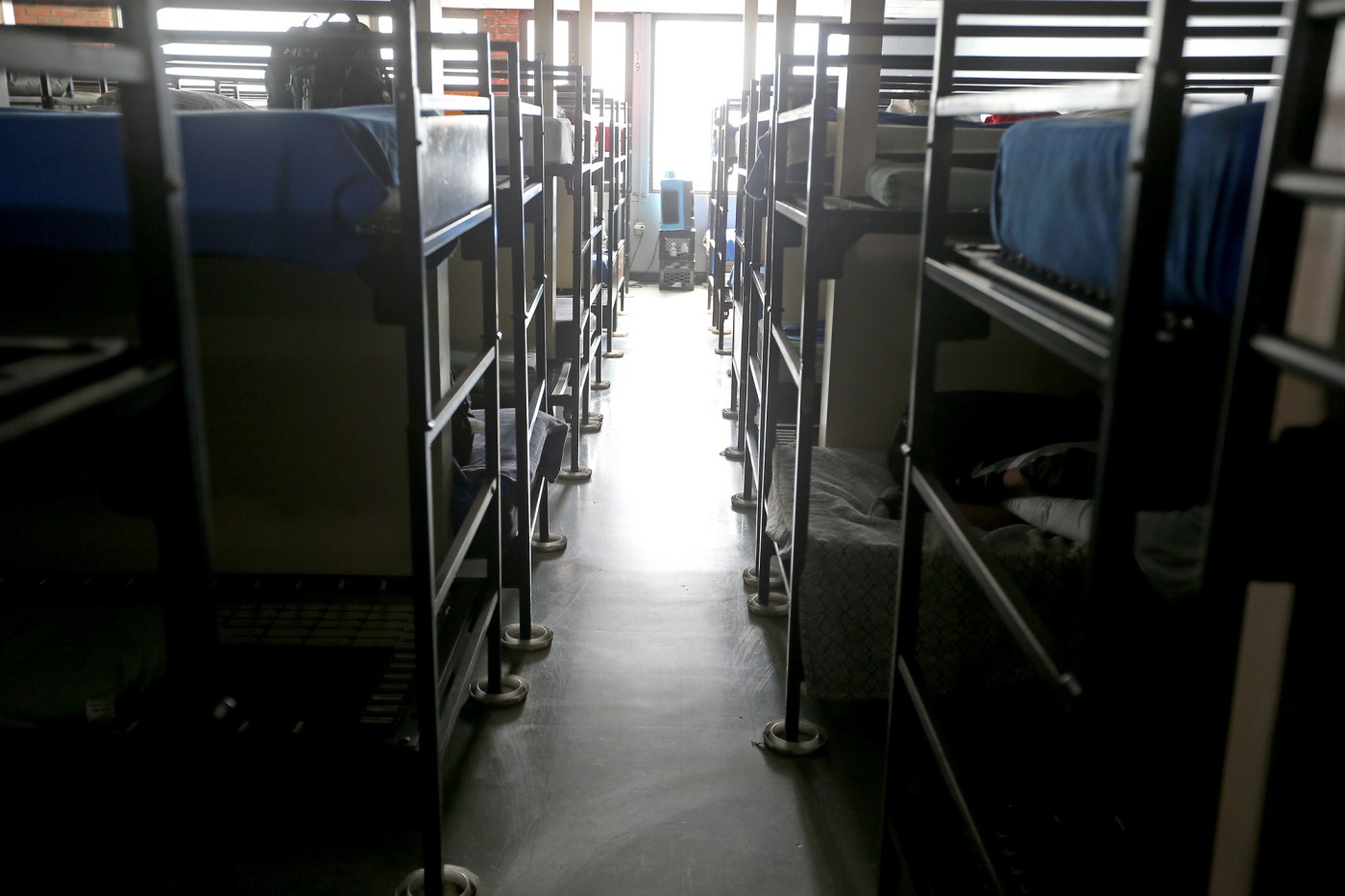
Winter weather in Massachusetts sparks concerns for unaccompanied homeless adults
Advocates and shelter providers say bubbling just beyond the surface of the family shelter crisis this winter are concerns that unaccompanied homeless adults are not receiving enough resources as temperatures drop below freezing.
Cold weather arrives as one provider told the Herald that they have seen more unaccompanied, unhoused adults seeking shelter compared to last year. It comes at a time when most of state government is focused on housing migrants arriving in Massachusetts.
Single adults do not have a right to shelter in Massachusetts like families with children or pregnant people, which means unaccompanied adults do not have guaranteed access to temporary housing.
Massachusetts Housing and Shelter Alliance CEO Joyce Tavon said member agencies across the state have reported shelters for adult individuals are largely full and “trying to figure out ways to add matts in their cafeteria, put people in chairs.”
But in some communities, she said, “that’s just not doable” because providers may not have permission to go above a certain occupancy level.
“Here we are, sadly, this winter, in a place we haven’t been in a very long time of like, ‘oh, my gosh,’ the numbers of people who are unsheltered are higher than ever before,” Tavon told the Herald.
At Father Bill’s & MainSpring, a shelter provider and homeless advocacy group, President and CEO John Yazwinski said average stays for adult individuals at their Brockton location have increased this winter about 40% over the same time last year and the population in the South Shore region has increased 40% as well.
Yazwinski said the organization is “definitely in overflow” mode.
“We have people sleeping on our floors just to get everybody inside this winter,” he said in an interview. “We estimate we’ve got right now well over 150 people who are sleeping outdoors, compared to maybe around 100 last year. We’re definitely concerned about making sure we’ve got enough physical space, and making sure that nobody is going to freeze and die outside.”
But getting a big picture understanding of the situation this year is difficult.
State agencies do keep track of the number of people staying in shelters but because there is no right to shelter for individuals, “the state hasn’t had that same pressure to track the numbers in that same way” as it does for families, Tavon said.
“Because of the nature of homelessness for adult individuals, and because we know there’s this crisis of people sleeping outside, that is much harder to get a firm handle on those numbers,” she said.
Housing unaccompanied adults in Massachusetts has always been a challenge for both advocates and providers because they do not have a legal right to shelter, said Kelly Turley, associate director at the Massachusetts Coalition for the Homeless.
If shelters are full or closed, there is no commitment to provide additional money or add capacity through hotels and motels, most of which are already being used these days as state-run shelters for families in the emergency shelter system.
Turley said she does not think the family homelessness crisis “is taking anything away from unaccompanied adults” even though attention is on families with children and pregnant people.
“But in some ways, I think it’s shining a light on that we need broader resources for all populations and shifting the conversations more to prevention and housing and making sure the emergency services are there for everyone,” she told the Herald.
Massachusetts is in line to spend nearly $2 billion in fiscal years 2024 and 2025 on the state-run emergency shelter system, which is designed for families with children and pregnant people and struggled to keep up with demand last year amid an influx of migrants and crushing housing costs.
The situation has sucked up most of the political oxygen on Beacon Hill in the last year as lawmakers raced to find a way to pay for a shelter system that Gov. Maura Healey capped in the fall at 7,500 families.
State officials have turned to a sweeping net of hotels and motels to house thousands of families, roughly half of which arrived in Massachusetts from other countries and are lawfully allowed in the United States by the federal government.
Communities have in the past turned to those hotels and motels on cold nights to house people experiencing homelessness.
“Some are able to but now we have a challenge that many of the hotels that people used to turn to are not available because they are being used to address the family migrant crisis,” said Tavon, the head of the Massachusetts Housing and Shelter Alliance.


